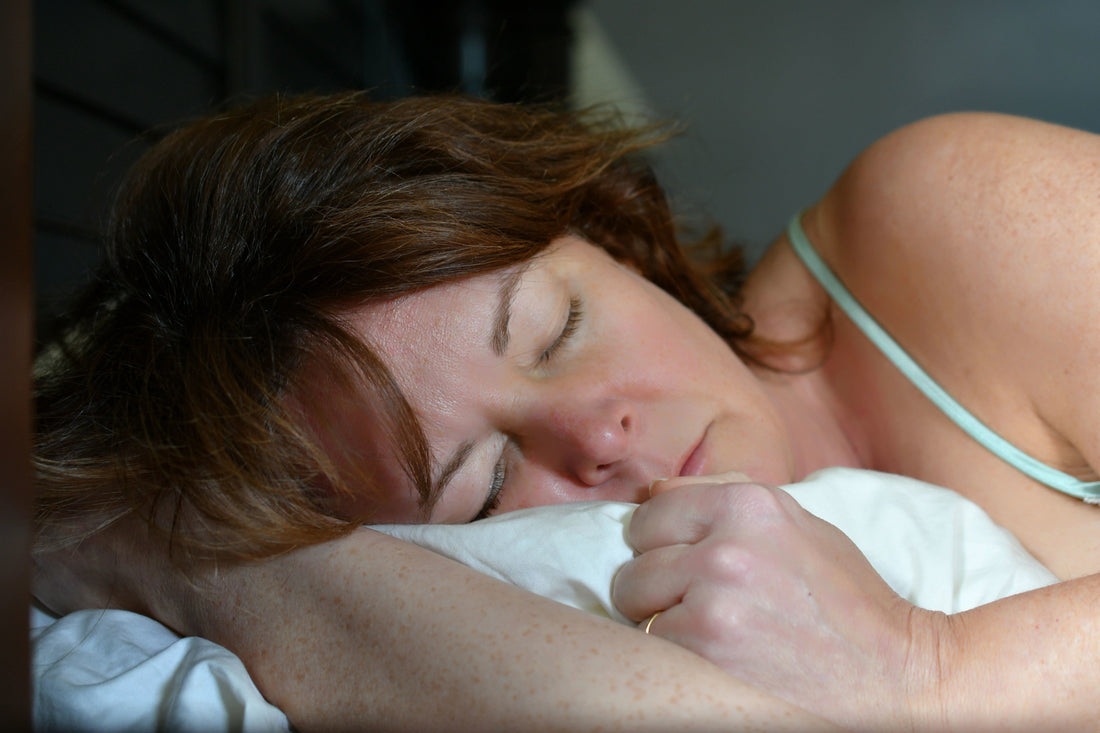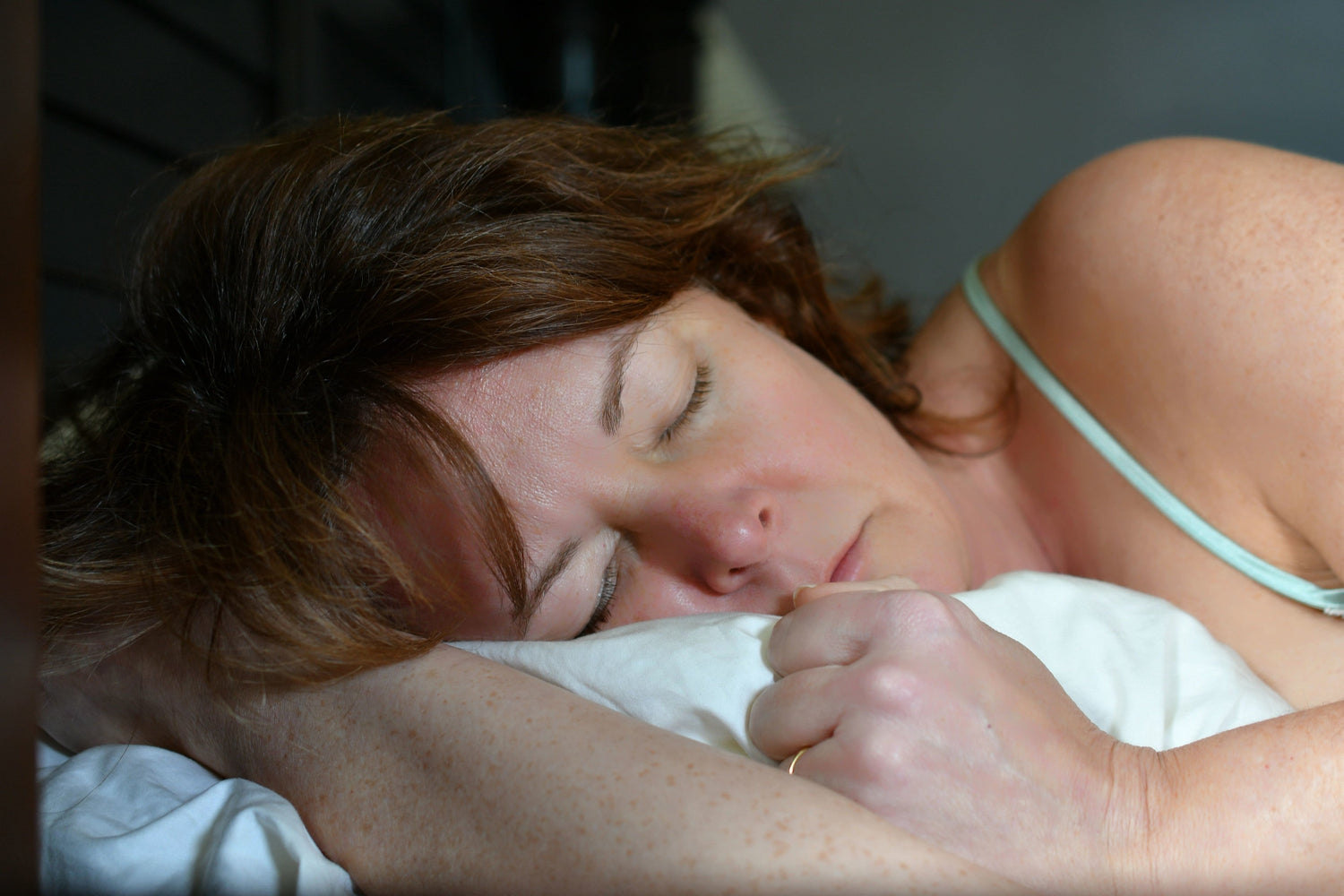Do your thoughts start racing the moment your head hits the pillow?
You're not imagining it and you’re far from alone. In a recent national survey by the American Academy of Sleep Medicine, a staggering 78% of Americans said they’ve lost sleep due to money worries, while more than half are kept awake by job stress, job security, politics, and even crime.
In today’s fast-paced, high-pressure world, sleep struggles are increasingly tied to stress. And when stress and sleep don’t play nice, it’s more than just a restless night it can impact your mood, energy levels, and long-term health.
Let’s break down what the data says, what it means for your well-being, and what you can do about it.

Why Stress Keeps You Awake
According to Dr. Andrew Spector, sleep medicine physician and spokesperson for AASM, elevated stress at bedtime interferes with the brain's ability to wind down. When your mind stays in “problem-solving” mode, your nervous system stays alert, making it harder to fall asleep or stay asleep.
What’s Keeping Us Up at Night?
-
Money problems: 78%
-
Job stress: 65%
-
Job security: 56%
-
Crime or violence: 61%
-
Politics: 56% (up from 46% last year)
-
Technology & AI worries: 39%
These findings highlight just how emotionally charged modern life can be. Financial insecurity, economic shifts, and global events have become part of our nightly routine, whether we want them to or not.
How Sleepless Stress Impacts Health
It’s not just about feeling tired.
Chronic stress-induced sleep loss can increase the risk of:
-
Anxiety and depression
-
Weakened immune response
-
High blood pressure and heart disease
-
Cognitive impairment and poor memory
-
Burnout and emotional dysregulation
In other words, the longer you let stress rob you of sleep, the harder it becomes to handle stress the next day, a vicious cycle.

Simple, Science-Backed Habits to Sleep Through Stress
The good news? You don’t need a total lifestyle overhaul. Small shifts in your evening routine can dramatically improve your ability to fall and stay asleep, even when life feels overwhelming.
Here are 7 proven tips to help your mind unwind:
-
Unplug an hour before bed
Avoid the news, emails, or doomscrolling on social media. Bright screens and negative content can spike cortisol and delay melatonin release. -
Set aside “worry time” earlier in the day
Block 10–15 minutes during the afternoon to write down or reflect on what’s bothering you. It helps your brain process stress earlier—not at midnight. -
Write it down
Can’t stop thinking about something? Journaling helps you mentally release nagging thoughts and park them outside your brain for the night. -
Get regular exercise (just not too late)
Moving your body during the day reduces anxiety and promotes better sleep. Just avoid intense workouts 1–2 hours before bed. -
Practice wind-down rituals
Try deep breathing, meditation, or light stretching to signal your body it’s time to relax. -
Don’t stress about not sleeping
Worrying about sleep can make insomnia worse. Instead of watching the clock, get out of bed, do a calming activity, then return when drowsy. -
Ask for support
If sleep struggles persist for weeks, don’t go it alone. A therapist, coach, or sleep specialist can offer coping tools and accountability.
“When we sleep better, we feel better, physically, mentally, and emotionally,” says Dr. Spector. “Getting quality sleep is one of the most powerful tools we have to build resilience and face life’s daily challenges.”
Bonus Tip: Optimize Your Sleep Environment
When stress levels are high, your sleep setup matters more than ever.
Your bedroom should feel like a calm, safe place not a second office or news station.
✅ Keep your space cool, dark, and quiet
✅ Invest in a supportive pillow and mattress
✅ Minimize clutter to reduce mental tension
✅ Use aromatherapy, white noise, or blackout curtains if helpful
A Note from Slumblr: How Your Pillow Helps Ease Stress
At Slumblr, we believe better sleep starts with better support, especially during high-stress times.

Our ergonomic pillows are designed to gently cradle your neck and shoulders, keeping your spine aligned and your body relaxed. Made from shape-retaining foam and wrapped in a breathable, silky-soft cover, Slumblr pillows reduce physical tension so your brain can finally rest.

✨ It’s not just a pillow, it’s a stress relief tool disguised as comfort.
Discover Slumblr →
In summary,
Stress may be part of life but sleepless nights don’t have to be.
By making small mindset shifts, building a better evening routine, and upgrading your sleep setup, you give your mind and body the break they deserve.
So tonight, put your worries on pause and let rest do its job. Because when you sleep better, you cope better. And that makes all the difference.





